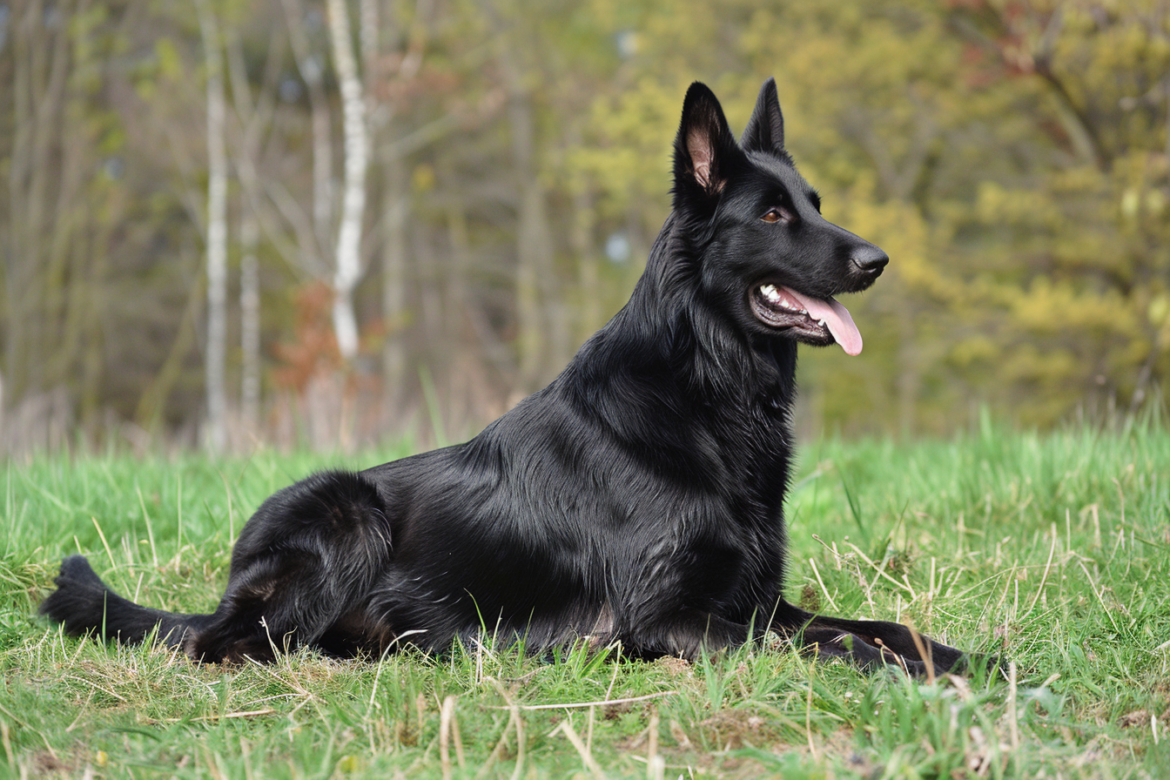The Importance of Starting Early Obedience Training for Your German Shepherd Dog Puppy
Time to Read: Approximately 8 minutes
Training a German Shepherd Dog puppy can be one of the most fulfilling experiences for any dog owner. Renowned for their intelligence, loyalty, and versatility, German Shepherds excel in various roles ranging from family pets to working dogs in law enforcement and search and rescue. To harness their full potential, it is crucial to begin obedience training at an early age. Early training sets the foundation for a well-behaved and well-adjusted adult dog, ensuring a harmonious relationship between you and your furry companion. This article outlines the numerous benefits of early obedience training for German Shepherd puppies and offers practical tips for getting started.
Capitalizing on Developmental Stages
The first few months of a puppy’s life are a critical period for learning and development. German Shepherd puppies, like most breeds, go through several key developmental stages where they are particularly receptive to new experiences and training. These stages include the socialization period (3-12 weeks) and the juvenile period (3-6 months). During these times, puppies are like sponges, eager to absorb information, learn new skills, and adapt to their environments.
Starting obedience training during these early stages allows you to instill desired behaviors and prevent the formation of bad habits. Puppies are more open to instruction and less likely to have developed stubborn behaviors, making it easier to teach them basic commands such as sit, stay, come, and heel. By capitalizing on these critical periods, you can set a solid foundation for more advanced training as your puppy matures.
Building a Strong Bond with Your German Shepherd Dog Puppy Through Training
Obedience training is not just about teaching commands; it is also a powerful way to build a strong bond with your German Shepherd Dog puppy. Training sessions provide an opportunity for you and your puppy to spend quality time together, fostering a sense of trust and understanding. Positive reinforcement techniques, such as treats, praise, and play, create a positive association with training, making it an enjoyable experience for your puppy.
This bond is essential for establishing effective communication between you and your German Shepherd. A strong, positive relationship built on trust and mutual respect sets the stage for a well-behaved and obedient adult dog. Your puppy will be more likely to respond to your commands and cues, leading to a more harmonious and rewarding partnership.
Socialization and Confidence Building
Socialization is a crucial aspect of raising a well-rounded German Shepherd. Early obedience training provides an excellent platform for socialization, exposing your puppy to various environments, people, and other animals. This exposure helps prevent fear-based aggression and ensures that your puppy grows up to be confident and well-adjusted.
German Shepherds have a natural protective instinct, which can sometimes lead to overprotectiveness or fearfulness if not properly managed. By incorporating socialization into your obedience training routine, you help your puppy develop positive associations with new experiences, reducing the likelihood of behavioral issues related to fear or aggression. This well-rounded socialization experience is crucial for creating a German Shepherd that is both confident and adaptable in various situations. Finding that perfect German Shepherd puppy for sale starts with a breeder that invests in socialization and confidence building.
Establishing Leadership and Structure
German Shepherds are pack animals that thrive under structured leadership. Early obedience training helps reinforce your role as the leader in your puppy’s eyes, establishing a clear hierarchy within the household. Consistent training and positive reinforcement techniques demonstrate to your puppy that you are a reliable and trustworthy leader.
This early establishment of leadership is essential for preventing behavioral issues such as dominance, territorial aggression, and disobedience. A well-trained German Shepherd understands their role within the family and is more likely to respect your authority. This structured environment provides a sense of security for your puppy, leading to a more obedient and well-behaved adult dog.
Mental Stimulation and Reduced Boredom
German Shepherds are highly intelligent dogs that require regular mental stimulation to prevent boredom and destructive behaviors. Early obedience training challenges your puppy’s mind, keeping them engaged and mentally stimulated. Training sessions that incorporate problem-solving tasks and interactive games provide the mental enrichment that German Shepherds need to thrive.
Boredom can lead to undesirable behaviors such as excessive barking, chewing, and digging. By incorporating regular training sessions into your puppy’s routine, you can prevent these behaviors and ensure that your German Shepherd remains happy and well-behaved. Mental stimulation is just as important as physical exercise for this intelligent breed, and early training sets the stage for a balanced, fulfilling lifestyle.
Preventing Behavior Problems
Many common behavior problems in German Shepherds, such as aggression, excessive barking, and separation anxiety, can be prevented through early obedience training. By teaching your puppy appropriate behaviors from a young age, you can address potential issues before they become ingrained habits.
For example, teaching your puppy to walk calmly on a leash, greet people politely, and respond to basic commands can prevent issues related to leash pulling, jumping on guests, and ignoring commands. Early training provides the tools and foundation needed to proactively manage and prevent behavior problems, leading to a more harmonious household.
Enhancing Safety and Confidence
Obedience training is essential for the safety of your German Shepherd and those around them. Teaching your puppy to reliably respond to commands such as come, stay, and leave it can prevent dangerous situations, such as running into traffic or ingesting harmful substances. By starting training early, you can ensure that your German Shepherd understands and responds to these critical commands, enhancing their safety and well-being.
A well-trained German Shepherd is also more confident and secure in their environment. Obedience training helps your puppy understand what is expected of them, reducing anxiety and uncertainty. A confident German Shepherd is less likely to exhibit fear-based behaviors and is more adaptable to new experiences and environments.
Lifelong Learning and Adaptability
German Shepherds have an impressive capacity for lifelong learning, and early obedience training lays the foundation for ongoing education and development. Starting training at a young age instills a love for learning and a positive attitude towards training sessions. As your puppy grows, you can build on this foundation with more advanced training, specialized skills, and canine sports.
A well-trained German Shepherd is more adaptable and capable of learning new tasks and commands throughout their life. Whether you are interested in pursuing obedience competitions, agility, scent work, or other activities, early training sets the stage for continued success and enjoyment. This adaptability ensures that your German Shepherd remains engaged, challenged, and fulfilled throughout their life.
Practical Tips for Early Obedience Training
To maximize the benefits of early obedience training, consider the following tips:
– Start Early: Begin training your German Shepherd puppy as soon as they arrive home. Puppies have a short attention span, so keep training sessions brief and positive.
– Use Positive Reinforcement: Reward-based training techniques, such as treats, praise, and play, create a positive association with training and motivate your puppy to learn.
– Be Consistent: Consistency is key to successful training. Use the same commands and rewards every time to reinforce desired behaviors.
– Socialize Early: Expose your puppy to various environments, people, and animals to build their confidence and reduce the likelihood of fear-based aggression.
– Keep It Fun: Make training enjoyable by incorporating play and interactive games. A positive training experience keeps your puppy engaged and excited to learn.
– Seek Professional Guidance: Consider enrolling in a puppy training class or working with a professional dog trainer to ensure you are using effective techniques and addressing any challenges.
Conclusion
Starting early obedience training for your German Shepherd puppy is a critical investment that sets the stage for a lifetime of success. By capitalizing on your puppy’s developmental stages, building a strong bond, and providing mental and physical stimulation, you can raise a well-behaved, confident, and adaptable adult dog. Early training prevents behavior problems, enhances safety, and ensures a harmonious relationship between you and your loyal companion. With dedication, consistency, and positive reinforcement, you can unlock the full potential of your German Shepherd and enjoy a rewarding and fulfilling partnership for years to come.




